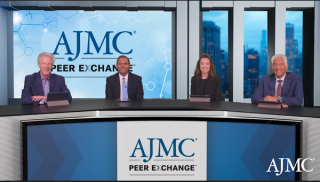
Heart Failure
Latest News

Latest Videos

CME Content
More News

Explore innovative strategies to enhance heart failure treatment through guideline-directed medical therapy, remote monitoring, and artificial intelligence–driven solutions for better patient outcomes.

Rayan Salih, MD, a third-year internal medicine resident with the Northeast Georgia Health System, who hopes to specialize in cardiology, presented the poster, “Double Trouble: Pregnancy Challenges in Heart Failure With Preserved Ejection Fraction and Cardiac Amyloidosis.”

Black women had lower moderate-to-vigorous intensity physical activity scores when compared with Black and White men and their White female counterparts, highlighting the need for support across patient subgroups.

An AI model significantly outperformed cardiologists when reviewing ECGs of structural heart disease and may potentially be a step towards increased access and lower costs for early detection of conditions like heart failure and valvular heart disease.

The majority of patients with heart failure who qualified for sodium-glucose cotransporter 2 inhibitor (SGLT2i) therapy did not receive treatment; a recent study aims to find out why and measure prescription trends.

Social determinants of health significantly increased mortality risks in patients with congestive heart failure, highlighting urgent care needs.

Carpal tunnel syndrome was linked to wild-type transthyretin amyloidosis in new research, highlighting the importance of early diagnosis for better heart failure outcomes.

Finerenone gained FDA approval for heart failure treatment, showcasing significant benefits in reducing cardiovascular events, based on FINEARTS-HF trial results.
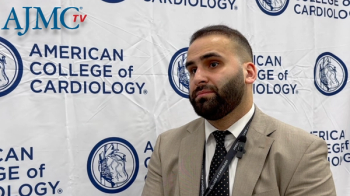
Findings presented at the American College of Cardiology Annual Scientific Session indicate that finerenone's efficacy in reducing cardiovascular death did not significantly differ across baseline bilirubin tertiles.
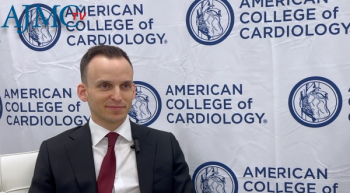
At the American College of Cardiology 2025 Annual Scientific Session, John W. Ostrominski, MD, of Brigham and Women’s Hospital, dives into the nuanced safety profile of finerenone for high-risk patients with heart failure.

On December 10, 2024, cardiologists, researchers, and value-based care experts gathered in Dallas, Texas, to discuss best practices for implementing advances in cardiology care with a value-based mindset, spanning the care continuum from prevention to treatment.

Cardiologists, primary care physicians, and value-based care leaders convened in Phoenix, Arizona, on November 12, 2024, to share case studies and insights on how to align cardiology with the principles of value-based care, including through the application of digital tools.
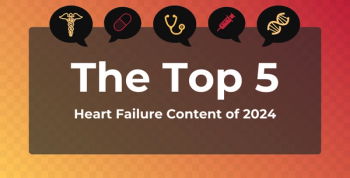
Some of the top heart failure research looked at statins and semaglutide for heart failure with preserved ejection fraction, diabetes-related heart failure risks, and the protective cardiovascular effects of COVID-19 vaccination.

Health care conferences this year showcased advancements in treatments for chronic obstructive pulmonary disease and sleep apnea, discussions around health policy and economic research, and more.
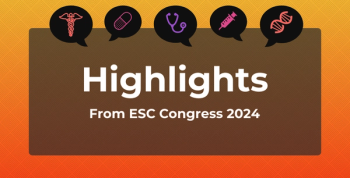
Top coverage from the 2024 European Society of Cardiology (ESC) Congress focused on screening, treatment, and equity in cardiovascular care.
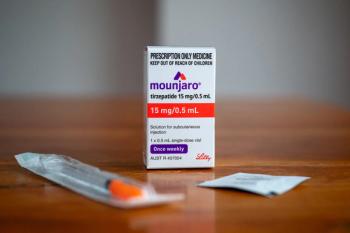
A SUMMIT trial analysis showed how tirzepatide improves cardiovascular and kidney health in patients with obesity-related heart failure with preserved ejection fraction (HFpEF).

Of the 518 hospitals that had at least 10 eligible discharges, only 11 of them prescribed SGLT2 inhibitors to more than half of their patients.

Noninvasive liver fibrosis scoring systems may help identify who is at risk of developing heart failure.

One study suggests these drugs could increase depression risk in heart attack survivors who retained normal heart pumping function, while providing no life-saving benefit.

Carol R. Regueiro, MD, MSc, of Allegheny Health Network (AHN), explains how AHN's congestive heart failure bundle has enhanced collaboration between cardiology and primary care.

Carol R. Regueiro, MD, MSc, of Allegheny Health Network, described how AHN's Physician Partners of Western PA practice support model and shadow bundle distribution model enhanced collaboration between primary and specialty care to improve patient outcomes.

The history of women being left out of heart disease research has had significant consequences on heart health care today.

Women are still being excluded from cardiovascular research trials, and it has a lasting impact on heart disease treatment for women today.

UMass Memorial Health–Harrington Hospital reduced 30-day readmissions for congestive heart failure by 50% using artificial intelligence and remote care teams.

Despite being eligible for guideline-directed medical therapy (GDMT), tens of millions of patients across the globe are not receiving the heart failure care they need.










